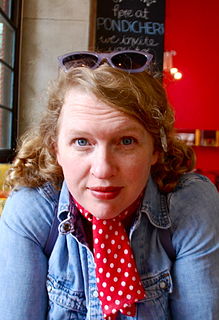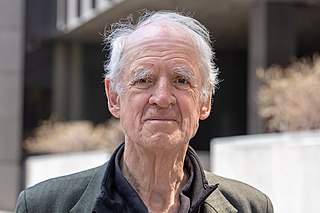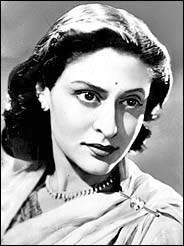A Quote by Katherine Center
Our lives disappear, even as we live them.
Related Quotes
We define our identity always in dialogue with, sometimes in struggle against, the things our significant others want to see in us. Even after we outgrow some of these others—our parents, for instance—and they disappear from our lives, the conversation with them continues within us as long as we live.
There is a purpose to our lives, even if it is sometimes hidden from us, and even if the biggest turning points and heartbreaks only make sense as we look back, rather than as we are experiencing them. So we might as well live life as if - as the poet Rumi put it - everything is rigged in our favor.
To those who live by the land there must always come times of hardship, of fear and of hunger, even as there are years of plenty. This is one of the truths of our existence as those who live by the land know: that sometimes we eat and sometimes we starve. We live by our labours fromone harvest to the next, there is no certain telling whether we shall be able to feed ourselves and our children, and if bad times are prolonged we know we must see the weak surrender their lives and this fact, too, is within our experience. In our lives there is no margin for misfortune.
Most of us live our lives desperately trying to conceal the anguishing gap between our polished, aspirational, representational selves and our real, human, deeply flawed selves. Dunham lives hers in that gap, welcomes the rest of the world into it with boundless openheartedness, and writes about it with the kind of profound self-awareness and self-compassion that invite us to inhabit our own gaps and maybe even embrace them a little bit more, anguish over them a little bit less.
The important thing is to firmly fix our gaze on our own weaknesses, not run away from them, but to battle them head-on and establish a solid self that nothing can sway. Hardships forge and polish our lives, so that eventually they shine with brilliant fortune and benefit. If left in its raw, unpolished form, even the most magnificent gem will not sparkle. The same applies to our lives.
The Nigerian storyteller Ben Okri says that ‘In a fractured age, when cynicism is god, here is a possible heresy: we live by stories, we also live in them. One way or another we are living the stories planted in us early or along the way, or we are also living the stories we planted — knowingly or unknowingly — in ourselves. We live stories that either give our lives meaning or negate it with meaninglessness. If we change the stories we live by, quite possibly we change our lives.’
Marriage is going to disappear, should disappear. And now the point is coming in the history of humanity where it becomes possible that marriage can disappear. It is already an outmoded phenomenon, it has lived too long and it has created nothing but misery. Marriage should disappear and love should flower again. One should live with insecurity and freedom. That I call intelligence.


































